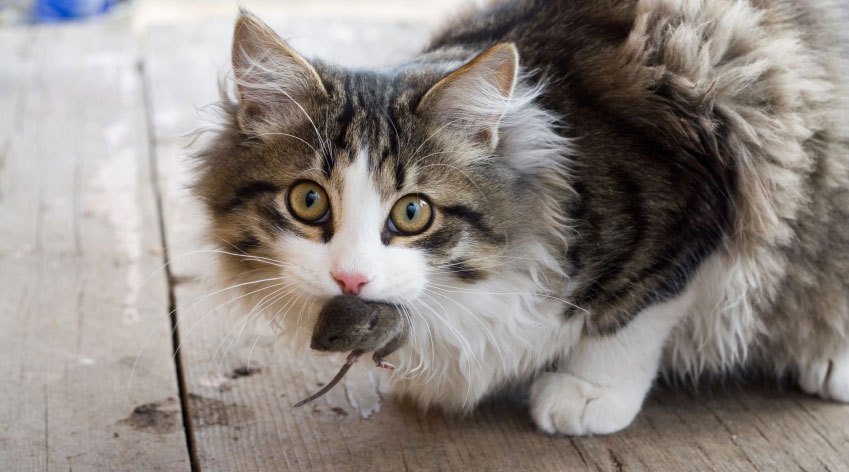Overrun with an estimated three million feral cats, Los Angeles has turned to the farms of Colorado for help, giving unadoptable cats a chance at a new, fulfilling life.
Los Angeles, California, has a serious problem: an endless, multiplying population of feral cats. And since 2009, because of some legal compliance issues, the city has not allowed "Trap, Neuter and Return" (TNR) of the free-roaming cats that end up in its shelters. This means that the cats that are caught can't be given to rescue organizations and can't be adopted -- and, sadly, often have to be euthanized. So that's when Kitty Bungalow Charm School for Wayward Cats entered the picture. The Los Angeles-based feral cat rescue shelter's Working Cat Program trains healthy cats to become working barn cats, helping to control the mice and rat population on farms and in warehouses, breweries, feed stores, and anywhere else where the presence of rodents could "damage structures and wiring, cause fires, and prey on baby animals," causing loss of productivity and profit.Working cats are cats that are going to live on a farm," Jan Heuer, a volunteer with Kitty Bungalow, told The Denver Post. "They’re going to catch the mice so you don’t have to worry about it anymore. They’re going to keep mice and rats away from the chickens. As long as you feed them and provide them warmth and shelter, they’ll keep coming back.”
Cats are spayed/neutered, vaccinated, and microchipped before being deployed to their new jobs, where they will be given a few weeks to adapt to their new environments before starting work. Adoption of the cats is free, though their hosts do agree to provide basic care -- a home safe from predators, as well as clean water and food. Even if the cats aren't particularly good hunters, it's okay -- Their scent alone will help deter rodents and assist with pest control.
[caption id="attachment_27765" align="aligncenter" width="849"] Image courtesy of Helotes Humane Society[/caption]
Image courtesy of Helotes Humane Society[/caption]
Ultimately, the program is a win-win-win for all involved: Los Angeles' feral cat problem goes down, Colorado farms gain an all-natural rodent-deterrent solution, and the cats' lives are saved and improved. I mean, what cat wouldn't be happy living in Colorado? This is a transplant situation we can get behind!
For information on obtaining a working cat, fill out an application here. More information about Kitty Bungalow and their Working Cat Program can be found on their website.
What do you think about this program? What are you thoughts about euthanizing feral cats vs. the opportunity to re-home them into a more meaningful life? Tell us in the comments below!
